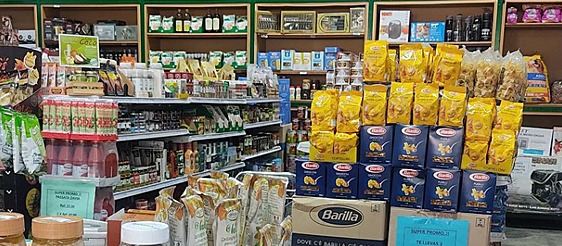According to a Canadian study, "Venezuela is not a socialist country, but a capitalist economy of bodegones".
El Político
One of the most visible signs of the new economy in Venezuela is the proliferation of stores that sell luxury products.
They are what are called "bodegas" or "bodegones", mini markets that sell imported products in dollars at unattainable prices for most of the population, the BBC reported.
"Norwegian salmon was four times more expensive than the price I pay in Norway," Benedicte Bull, professor of Political Science at the University of Oslo and Director of the Norwegian Research Network for Latin America (NorLARNet) and the Academy of Global Governance in Oslo.
Bull, who recently traveled to Venezuela, participated in a study done in collaboration with the Center for Labor Research and Training (CIFO), directed by Manuel Sutherland and Antulio Rosales, from the University of New Brunswick, Canada, called "Venezuela: from economic crisis to elitist "bodegonero" capitalism".
(Videos in Spanish)
The analysis shows how bodegones have become a symptom of the deep Venezuelan economic crisis and argues that this type of business is the most visible face of a de facto "anarchic dollarization" and of the new inequalities that exist in the country.
According to the BBC Mundo note, for a few years, the Nicolás Maduro regime has been promoting reforms that liberalized the economy through different mechanisms.
One result of that is the proliferation of bodegones, stores that sell luxury imported products. Why do these stores appear?
They are the result of two policy changes. One is dollarization, in the sense that the use of dollars was allowed, and the other is the exemption from tariffs. It was supposed to be a short period, but it has been extended.
With the bodegones you can import door to door, directly from abroad, to alleviate the shortage that has existed for many years in the country. These are exceptions to normal tariff regulations.
Prices in dollars
Prices are always set in dollars, although bolivars can sometimes be used for cheaper products. And about half of the workers in the bodegones earn their salary in bolivars.
"When I have been there I have found Norwegian salmon with the packaging written in Norwegian, that is, they are not products that were intended for export. They are imported directly from one business to another business. The Norwegian salmon was four times more expensive than the price I pay in Norway", says Bull.
The oldest bodegones were opened about six years ago, but most have been created within the last three years.
The note states that the clients of the bodegones are mainly the elite who can afford to buy in them.
"But we find that not all prices are so excessive, although they are obviously not within the reach of those who earn a salary in bolivars", says Bull.
If you want to read the full article, click on the following link: BBC.










